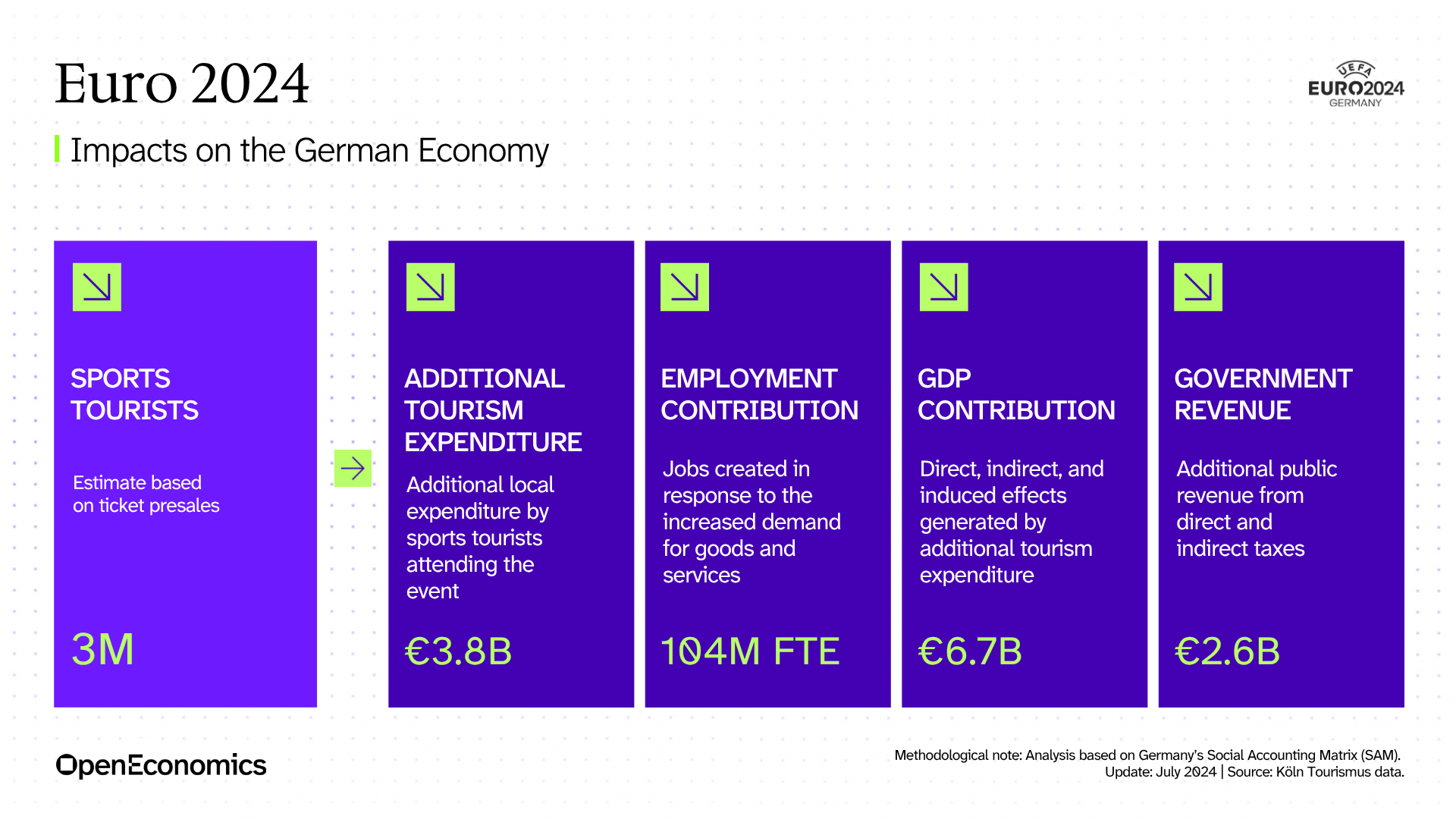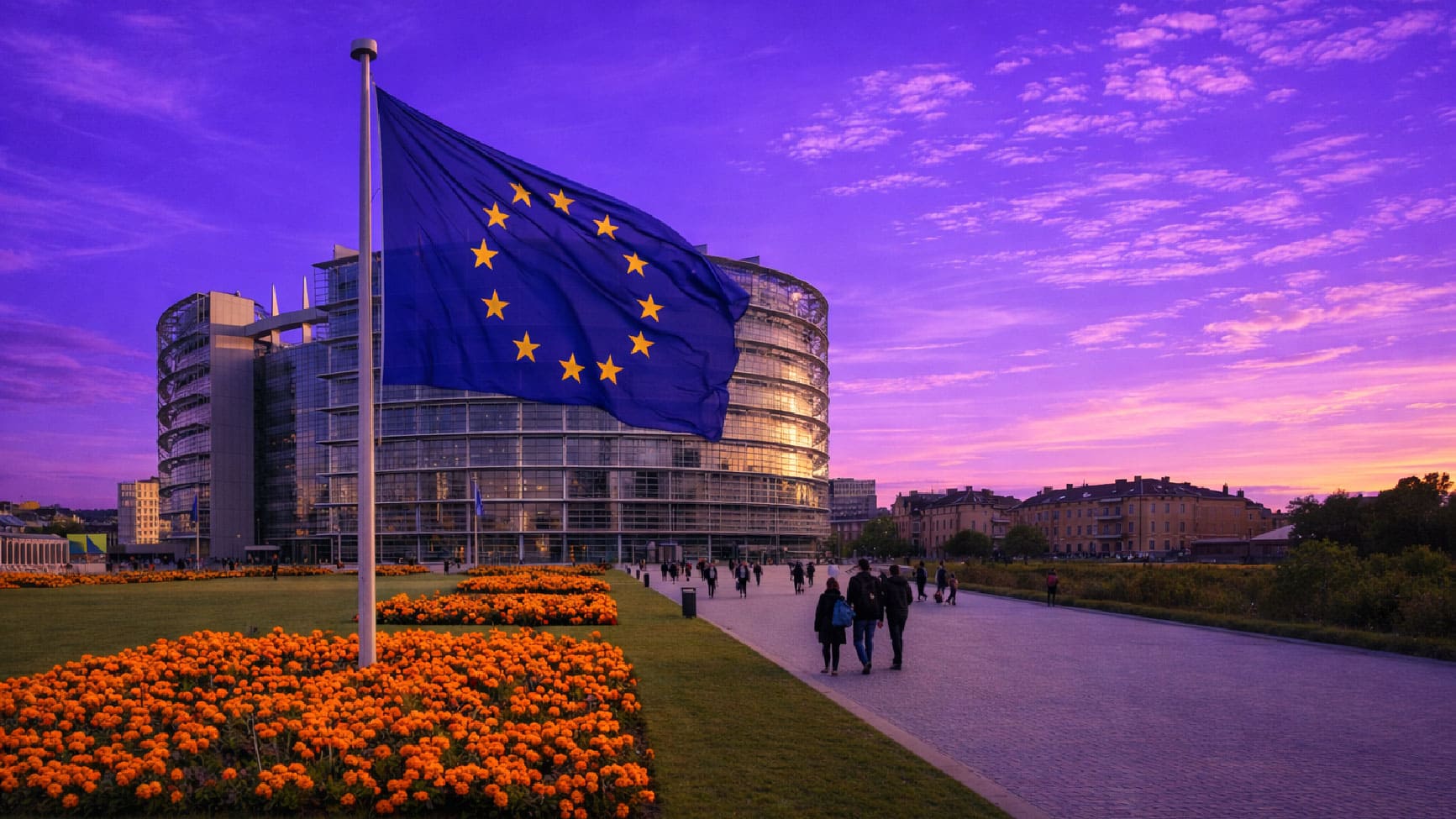EURO 2024 ended with Spain’s well-deserved victory — but also with a strong boost to the German economy. This is the conclusion of a study that highlights the economic impact of the event.
EURO 2024 as a demand shock
The study used a macroeconomic model based on Germany’s Social Accounting Matrix (SAM), updated in July 2024, to simulate the effect of tourist spending on the economy.
This approach makes it possible to evaluate the direct, indirect, and induced effects of a sporting event on the national economic system.
The results show:
- €6.7 billion in additional GDP
- €2.6 billion in tax revenues
- 104,000 full-time equivalent jobs created
The main driver was sports tourism spending, estimated at €3.8 billion, spread across hospitality, transportation, entertainment, and local consumption.
The most impacted sectors were tourism, entertainment, and sports services, underlining the effectiveness of the event as a nationwide economic lever.

More jobs and revenues: when sport becomes a macroeconomic driver
EURO 2024 represented a best practice in managing a major international event, generating positive impacts both in terms of demand and employment.
The 104,000 new jobs were created in response to increased demand in hospitality, services, transport, and retail.
Meanwhile, the German government gained €2.6 billion in direct and indirect tax revenues.
EURO 2024 demonstrated that international sporting events can be managed as economic policy tools, capable of delivering real public returns.
Not just visibility and entertainment — but tangible value for host territories.
In a Europe seeking opportunities for shared growth, football continues to be a key driver of economic resilience and international cooperation.
If you enjoyed this article and want to explore more, follow OpenEconomics on LinkedIn.













